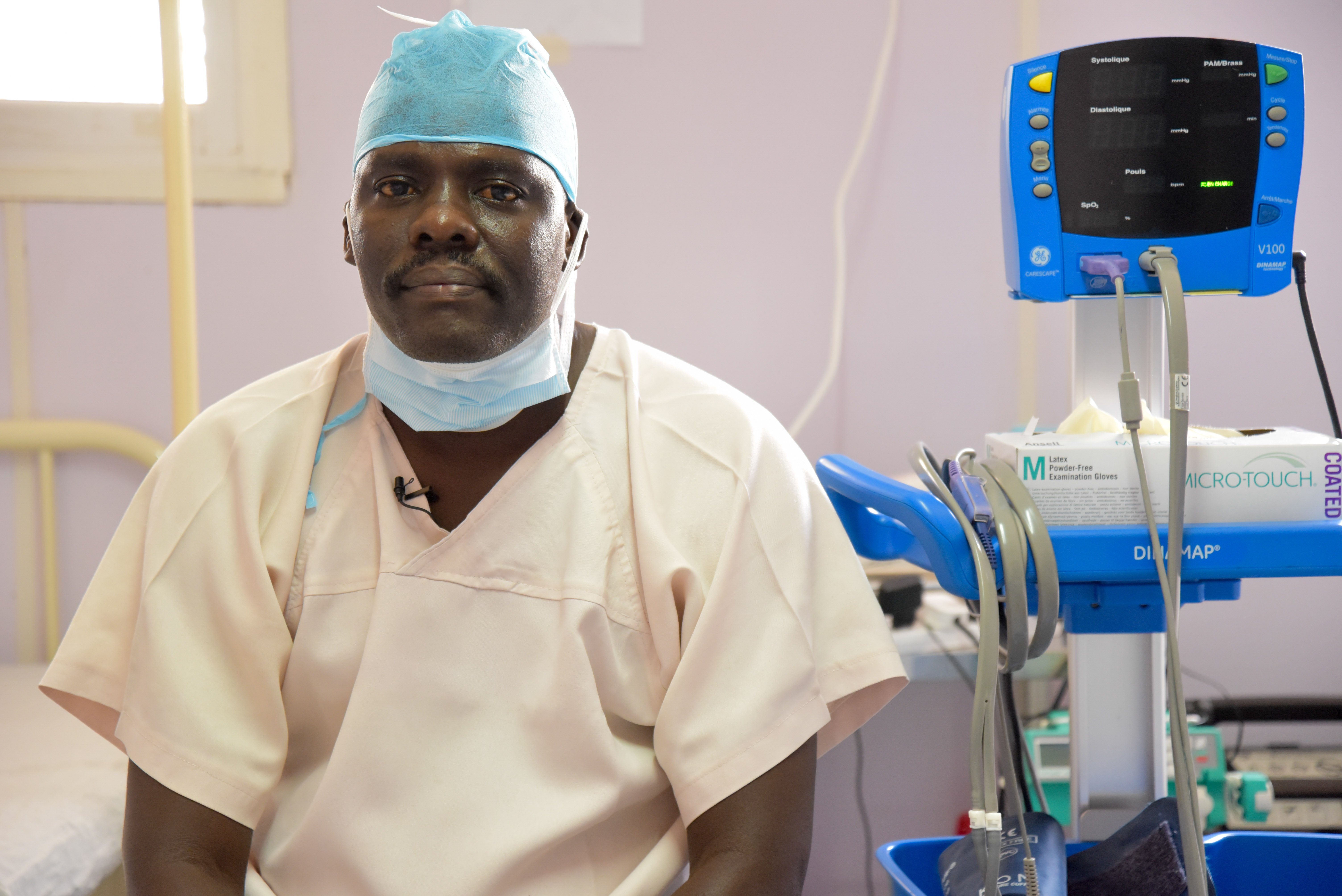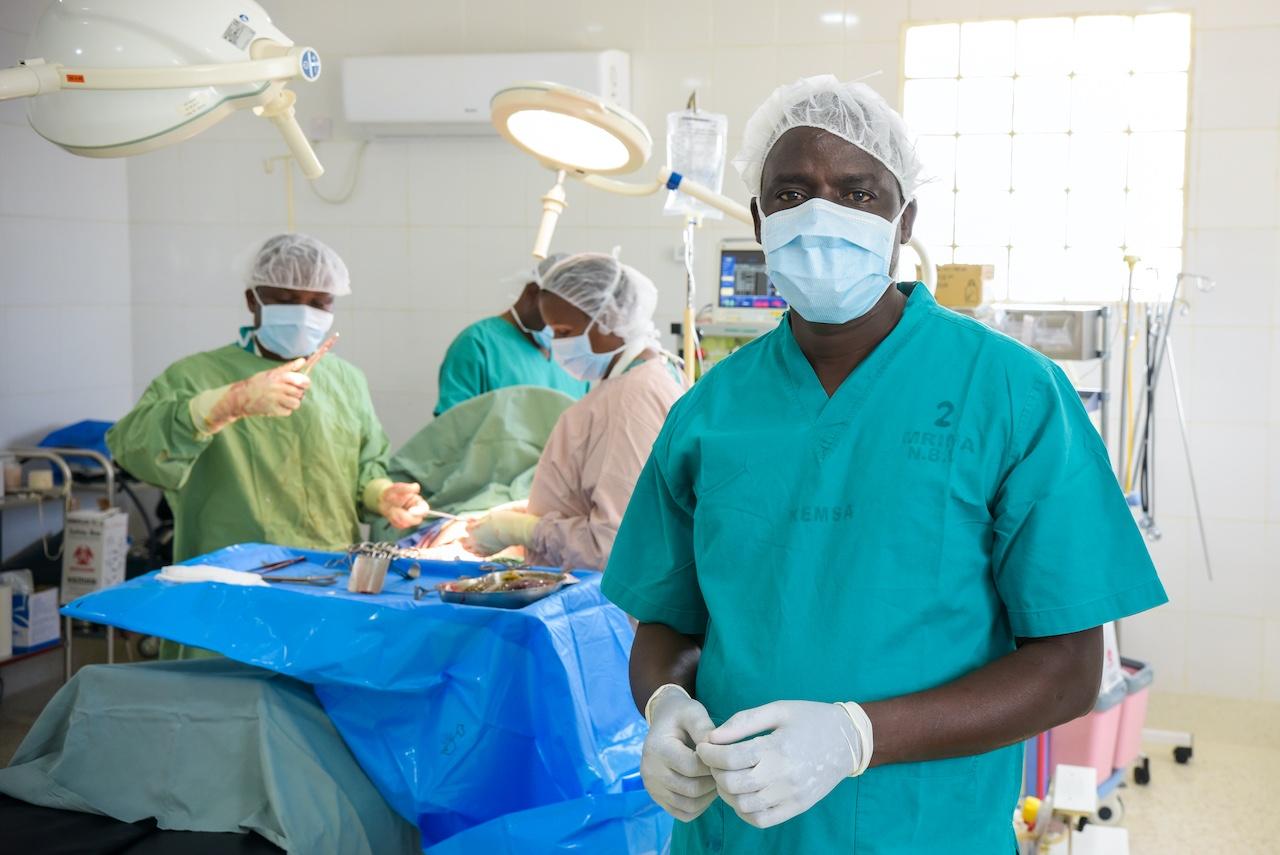Ali oversees the day-to-day running of the operating theatre and its related sections, including sterilization, ensuring that they are operating at the required standards. He ensures surgical safety is adhered to and infection prevention and control standards are upheld and managing inventories of surgical resources, ensuring they are well stocked and ready for use when needed. He also assists the surgeons during surgeries and mentors some of the other theatre support staff.
A nurse by training, Ali says he’s driven by the outcomes of his work, “which is often visible in the eyes of the mothers when they hold their babies. I enjoy seeing mothers who had developed complications during delivery walk out of the hospital with their bundles of joy with minimal to no complications post-surgery,” he says. “Maternal and infant mortality cases are minimal because we have a well-functioning operating theatre; there are places where you may wish to help a patient in a critical condition, but are limited by the resources available at your disposal. MSF has been of great support in this front.”
Most of the surgeries conducted in the operating theatre are for emergency cases, with elective cases only considered for mothers who have other conditions that may endanger their lives or those of their babies – such as previous caesarean sections, diabetes, and high blood pressure among others.

MSF has been working in Mombasa’s Likoni Sub-County since late 2016 and is currently providing comprehensive emergency maternal and neonatal care (CEmONC) and other sexual and reproductive health services at the Mrima Hospital. CEmONC are the interventions provided to pregnant women and new-borns experiencing fatal complications, including severe bleeding, infection, prolonged or obstructed labour, high blood pressure in mothers, and asphyxia (suffocation) in new-borns. These interventions include safe blood transfusion, performing caesarean sections, assisted vaginal delivery, and resuscitation of new-borns.
Before MSF started its medical activities in Likoni, there were no facilities providing emergency obstetric or neonatal care in the highly populated Sub County. Expectant mothers had to take a ferry across a channel to access maternal services on Mombasa Island. In an emergency, the time taken to make the crossing could prove life-threatening for mothers and babies alike.
In January 2020, MSF began the process of handing over the services and the hospital in phases, to the Mombasa County Department of Health (DoH). By start of July this year, all activities in the hospital will be run by the county’s DoH. Ali will move to another MSF section to further support in the social mission of the organisation. “I will miss working in this OT, but I have to move on. Working in there had its challenges, but we made the environment as lively as we could even while under immense pressure. I will miss the colleagues and friends we made here, but the facility will continue to play the huge role it does for the many mothers who need it,” Ali adds.
